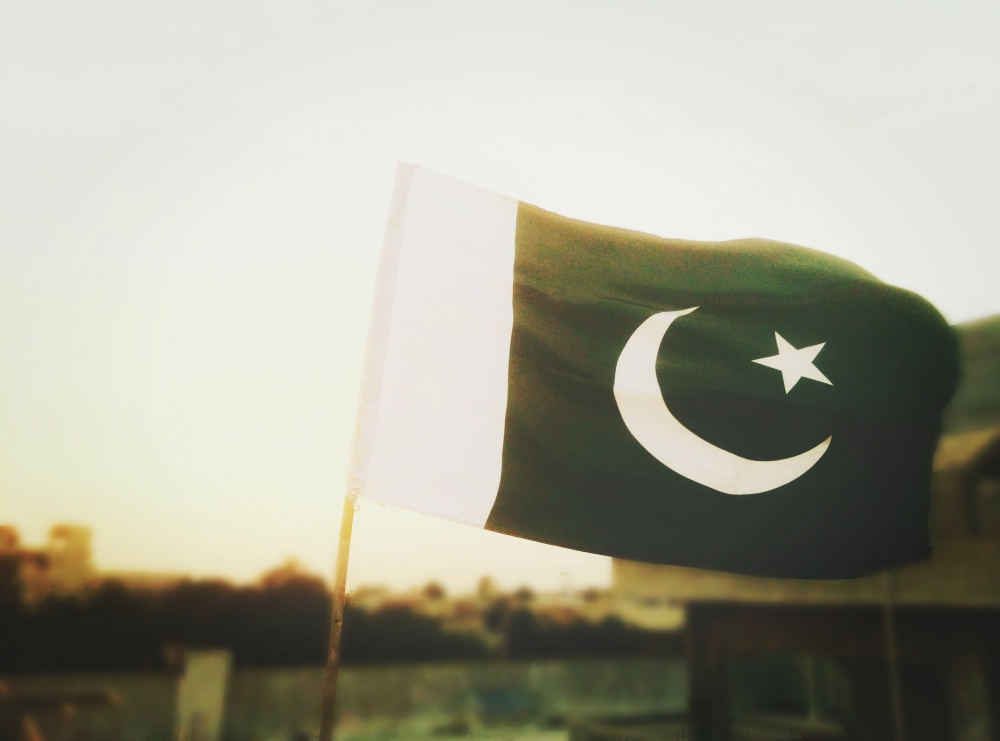How to get a Finnish IP address
The easiest way to improve your digital privacy is to switch your IP address using a VPN. We’ll …

Pakistan’s popular Geo TV network is blocked in over 80% of the country, allegedly for criticizing the country’s military for their imposed authority over civilian institutions. This appears to be another case of the government abusing its power in determining what content its citizens may consume, as well as sending a warning to other media outlets that it will not accept negative reporting.
While government officials deny blocking Geo TV, this isn’t the first time the media has been attacked for their military coverage. Back in January, renowned Pakistani poet, social activist, and academic, Salman Haider, was reportedly abducted for his sometimes-critical stance on the military’s politics. It was then discovered that two other bloggers and social activists, Ahmed Raza Naseer and Samar Abbas, had also gone missing for similar alleged reasons.
Then there was Cyril Almeida, a reporter for the Dawn newspaper, who had been critical of the military not allowing action against banned outfits in Punjab. Almeida was then put on the Exit Control List, causing an uproar: “How dare the government and military top brass lecture the press on how to do their job,” said Daily The Nation in a subsequent editorial. “How dare they treat a feted reporter like a criminal. And how dare they imply that they have either the right or the ability or the monopoly to declare what Pakistan’s ‘national interest’ is.”
Facing severe backlash, Almeida’s Exit Control List ban was later overturned.
The blocking of Geo TV initially occurred back in early March. As time progressed, the block has now widened to affect most of the country. What’s perhaps most strange is that citizens had no idea why they couldn’t access the network; no media outlets were reporting on the situation. A senior official from another television news network told the New York Times that his channel was backing off from any coverage of Geo’s blockage: “The channels are falling in line to avoid a similar fate.”
It’s been nearly 2 months since #GEONews was taken off air on my office’s cable network which is @WCTLtd
Only now I’m learning that @geonews_urdu is being forcibly taken off air on multiple cable networks across the country! Totally unacceptable! pic.twitter.com/iODJfUgsno— Farhan Janjua (@FarhanJanjua) March 31, 2018
In response to news of the block, Steven Butler, the Committee to Protect Journalists’ program coordinator for Asia, said: “The arbitrary suspension of Geo TV on cable TV is a direct assault on Pakistan’s constitutionally guaranteed right to access information. It’s outrageous that the authorities are either unable to find or too frightened to name those powerful enough to orchestrate the blocking of the news distribution.”
This isn’t the first time Geo TV’s editorial stance has come under fire from the military. Back in 2014, the channel’s license was temporarily suspended after gunmen attacked one of its talk show hosts; the host’s relatives accused the military’s spy agency of being behind the assault, leading to the network’s suspension.
Global censorship is something that is affecting more and more people around the world; even the United States, where freedom of speech has long been one of its greatest values, is now facing issues of media discrediting and false narratives.
Online freedom has been in a steady global decline for years, and signs suggest it’s only getting worse. People are now realizing that the best way to protect their right to access uncensored information is by taking measures into their own hands. For example, earlier this year, when the Iranian government blocked social media apps to prevent the spread of news about the country’s civil unrest, millions of people downloaded a Virtual Private Network (or VPN) to bypass content restrictions and ensure their voices were heard.
VPNs are currently used in Pakistan to unblock all sorts of content, from cricket matches to the U.S. versions of Netflix. By routing a person’s web traffic through a secure server located in a different country, you can fool the sites you’re visiting into thinking you’re located elsewhere, thus any geo-restricted blockade will be bypassed. VPNs are now increasingly being used as an effective tool to fight back against global censorship, as well as keeping a user’s online activities private and shielded from prying eyes.
As for Geo TV, there are talks that a negotiation to unblock the content is underway. Mr. Rahman, the network’s chief executive, told the New York Times that they will be “going to the Supreme Court.” However, he followed that up by saying he has “been told not to expect justice.”
Fight online censorship by downloading Hotspot Shield for free today, and ensure your online activities remain private and secure from hackers and government actors.
